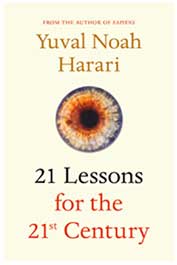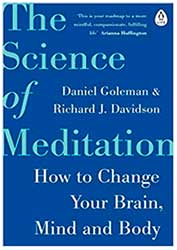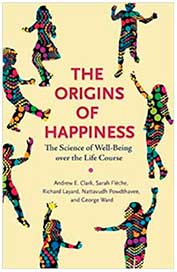Klaus Schmidt-Hebbel



21 Lessons for the 21st Century
Yuval Noah Harari
Description
In Sapiens, he explored our past; in Homo Deus he looked to our future. Now, one of the most innovative thinkers on the planet turns to the present to make sense of today’s most pressing issues. Religion, terrorism, war, politics, fake news, human migration, the environment, nationalism. 21 Lessons for the 21st Century is a probing investigation into the big subjects that we are confronting on a daily basis in the media and in our lives, and the issues of crucial importance to understand as we move into the unchartered territory of the future. As technology advances faster than our understanding of it, hacking becomes a tactic of war, terrorism and fundamentalism rise, and the world feels more polarized than ever, Harari makes sense of it all and raises the important questions we need to ask ourselves if we are to survive. In 21 accessible chapters that are both provocative and profound, he provides advice on how to think about these topics and how to act in order to prepare for a future unlike anything we can dream of. Few writers of nonfiction have captured the imaginations of millions of readers in quite the astonishing way Harari has managed. His unique ability to look at where we have come from and where we are going has gained him fans from every corner of the globe. There is an immediacy and accessibility to this new book that makes it essential reading for anyone interested in navigating the world today.
The Science of Meditation: How To Change Your Brain, Mind and Body
Daniel Goleman and Richard Davidson
Description
A fascinating and practical guide from two New York Times bestselling authors, backed by state-of-the-art scientific research. Drawing on cutting-edge research, friends and Harvard collaborators Daniel Goleman and Richard Davidson expertly reveal what we can learn from a one-of-a-kind data pool that includes world-class meditators. They share for the first time remarkable findings that show how meditation - without drugs or high expense - can cultivate qualities such as selflessness, equanimity, love and compassion, and redesign our neural circuitry.
Demonstrating two master thinkers at work, The Science of Meditation explains precisely how mind training benefits us. More than daily doses or sheer hours, we need smart practice, including crucial ingredients such as targeted feedback from a master teacher and a more spacious worldview. These two bestselling authors sweep away the misconceptions around these practices and show how smart practice can change our personal traits and even our genome for the better.
Gripping in its storytelling and based on a lifetime of thought and action, this is one of those rare books that has the power to change us at the deepest level.
Blurbs
'This is a book that really can change your life", Arianna Huffington, author of the 'New York Times' best seller "The Sleep Revolution"
"The definitive book on the science of meditation. Rigorously researched and deeply illuminating", Daniel Gilbert, PhD, author of the New York Times bestseller "Stumbling on Happiness"
"This exquisite duet between a down-to-earth science writer and path-breaking neuroscientist is a tour-de-force, revealing how training the mind can transform the brain and our sense of self, inspiring us to create a greater sense of well-being, meaning, and connection in our world. Bravo!", Daniel J. Siegel, M.D., author of the "New York Times" best sellers, "Mind" and "Brainstorm"
The Origins of Happiness: The Science of Well-Being over the Life Course
Andrew Clark, Sarah Fléche, Richard Layard, Nattavudh Powdthavee, and George Ward
Description
What makes people happy? Why should governments care about people’s well-being? How would policy change if well-being were the main objective? The Origins of Happiness seeks to revolutionize how we think about human priorities and to promote public policy changes that are based on what really matters to people. Drawing on a uniquely comprehensive range of evidence from longitudinal data on over one hundred thousand individuals in Britain, the United States, Australia, and Germany, the authors consider the key factors that affect human well-being.
The authors explore factors such as income, education, employment, family conflict, health, childcare, and crime—and their findings are not what we might expect. Contrary to received wisdom, income inequality accounts for only two percent or less of the variance in happiness across the population; the critical factors affecting a person’s happiness are their relationships and their mental and physical health. More people are in misery due to mental illness than to poverty, unemployment, or physical illness. Examining how childhood influences happiness in adulthood, the authors show that academic performance is a less important predictor than emotional health and behavior, which is shaped tremendously by schools, individual teachers, and parents. For policymakers, the authors propose new forms of cost-effectiveness analysis that places well-being at center stage.
Groundbreaking in its scope and results, The Origins of Happiness offers all of us a new vision for how we might become more healthy, happy, and whole.
By Martín Carrasco (martinjcarrasco@gmail.com) Klaus Schmidt-Hebbel